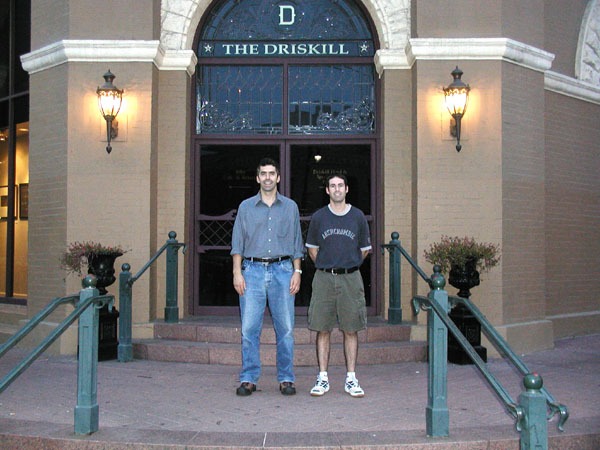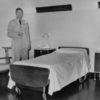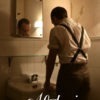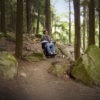
Boston to Austin: A Screenwriter’s Adventure
Written by Randy Steinberg | Posted by: Anonymous
In 1960, John F. Kennedy teamed up with Lyndon Johnson on the Democratic ticket for the Presidential race: in politic-speak, the "Boston to Austin" connection was born. On October 8, I, a Bostonian, journeyed to Austin, Texas, but the reason for my trip was far from political in nature. It was as a screenwriter and an artist that I traveled to Austin for the 10th annual Austin Film Festival (AFF).
Over the past few years, Austin’s festival has fast become the Mecca for screenwriters as the AFF is catered to the scribe: if Sundance is the premiere film festival for new talent and Telluride for independent cinema, the AFF has cemented itself as the event that celebrates the screenwriter.
A bank on every corner and grackles (southwestern birds) calling out shrill, car-alarm-like notes, Austin is a nice fit for a screenwriters’ festival. The city is unassuming and casual. Live blues can be heard emanating from the bars on 6th St., and a friendly "what y’all doing here?" from a University of Texas student is common.
The Film Festival itself ran from October 9-16, but the undeniable focus of the festival was the screenwriters’ conference and competition, which took place from the 9th to the 12th. A Murderer’s Row of Hollywood screenwriters graced the guest list along with a sampling of agents, producers, and assorted entertainment business personnel.
New England was well represented in the writing department. Peter Filardi, screenwriter for "Flatliners," attended Boston University as did his brother Jason Filardi, also in attendance, who penned the summer hit "Bringing Down the House." Another BU alum in attendance was star Hollywood scribe Scott Rosenberg. A legend at BU’s College of Communication, Rosenberg broke into the business with "Things to Do in Denver When You’re Dead" in 1995. He went on to pen the films "Con Air," "Gone in Sixty Seconds," and "High Fidelity." This summer, Rosenberg’s "Kangaroo Jack" topped box-office receipts in its weekend release. Finally, Brian Helgeland, a New-Bedford native was in town to premiere "Mystic River." Helgeland adapted the novel by Denis Lehane for the screen. The film is directed by Clint Eastwood and stars Sean Penn, Tim Robbins, and Kevin Bacon, and is being touted as a sure-fire Oscar contender for Best Picture and Best Adapted Material.
The AFF is heavily weighted toward the business side of screenwriting. Writers come from far and wide, hoping to make a connection to an influential producer or glean advice on how to break into the "biz." In Austin, there weren’t many discussions about mise-en-scene versus montage, nor were academics present comparing the films of Fellini to Bresson. The AFF is a little piece of Hollywood. The three-act system of screenwriting rules the roost. Stories of the coffee hustler turned six-figure scriptwriter for Paramount abounded in Austin.
Each day’s docket included an array of panels designed to counsel the struggling writer. From "Screenplay Contests: How Not to Blow It," to "The Writer/Producer Relationship" to "The Truth About Agents" to "Wading Through the Minefields: Making it in the Biz" to "Dynamic Duos: Two Writers Tell All" to "The Independents: Being Independent in Hollywood" and many more, writers such as myself bounced from the Texas State Capitol to a number of other panel sites throughout the city to hear what the experts had to say. The range of experience in writers was great, but the tenor of most panels drifted back to what every struggling screen scribe wants to know: how do I go from the frustrated writer in my one bedroom apartment to the celebrated screenwriter in Los Angeles, earning six figures per script and rubbing elbows with Hollywood elite?
Roundtables were also provided to help writers with their craft. Seasoned screenwriters and producers imparted words of advice on creating characters with depth, writing dialogue that sings, and a number of other screenwriting subjects. Meet and greet sessions were scheduled each day: in a relaxed, informal setting, writers were able to chat with agents, producers, and managers.
The nerve center of the conference was the Driskill Hotel Bar and Lounge. After hours, writers congregated to share cocktails and swap war stories. Business cards changed hands faster than cash in a casino. Baseball fans hung on every pitch and play in the Red Sox-Yankees American League Championship Series. Some of the well-known screenwriters also mixed and mingled with their up-and-coming confreres.
The awards luncheon was given on Saturday, October 11th where two long-time writers were feted. In television writing, Tom Fontana, scribe for "St. Elsewhere," "Homicide: Life on the Street," and "Oz," was honored. Frank Pierson, screenwriter of "Dog Day Afternoon," "Cat Ballou," and "Cool Hand Luke" received film-writing kudos.
Awards were also bestowed upon entrants into AFF’s well-known screenwriting competitions. Over 4,000 writers entered the feature-film competition. Making even the second round (approximately the top ten percent of entrants) can be a huge boost to a writer’s career. The 15 semi-finalists received reads from an agent with Creative Artists Agency in Los Angeles — that’s how influential the AFF competition has become. Indeed, the 2000 screenplay champions, Don and Cindy Hewitt, have gone on to earn many Hollywood assignments including the adaptation of the animation success "Spirited Away."
After four days of panels and films (and some late nights carousing) I was physically and emotionally spent. The final day of the festival was a light one with few panels scheduled, but the one I did attend was by far, for me, the best event of the conference. Neil Young was in town to premiere his first effort as a filmmaker, titled "Greendale." He and a long-time writer named Bill Witliff ("The Black Stallion," "Legends of the Fall," and the New England hit "The Perfect Storm") took questions and commented on the topic "Non-Traditional Storytelling."
For me, Mr. Witliff stole the AFF. Over the span of the conference I had been bombarded with advice on how to break into the business and what sells in Hollywood. No story or pearl of wisdom was the same, and the 2,000 mile trip seemed a great distance to come for so little insight. But Witliff’s talk lifted my spirits and made the adventure feel worthwhile. Witliff is a native Texan with a cowboy’s twang in his voice and deep-set, sagacious eyes. He did not say anything pat or standard. He questioned the validity of the three-act system of screenwriting, derided what most film schools teach, and summed up what most screenwriters and filmmakers don’t seem to know: "A great filmmaker invites the audience to become participants, not merely observers, in his or her story," Witliff said.
As the plane touched down at Logan, Witliff’s words remained with me, repeating in my mind. I don’t know if I’ll ever return to Austin, but a piece of the city, in the form of Witliff’s remark, has stayed with me. From Boston to Austin and back again, I journeyed a great physical distance for an undoubtedly greater emotional and spiritual connection.
For more information on the Austin Film Festival, visit www.austinfilmfestival.com.











